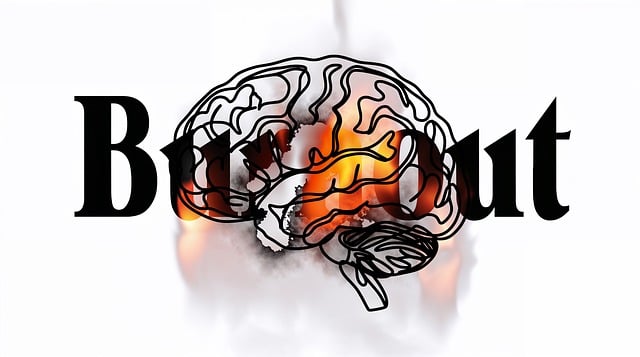Castle Rock Sexual Abuse Survivor Therapy (CRSAT) uses RFM principles to help individuals recover from sexual abuse through self-awareness, resilience-building exercises, and coping strategies. Employing evidence-based techniques like EMDR, CBT, and stress reduction methods, CRSAT reduces trauma symptoms, enhances mental health awareness, and fosters personal growth. Their holistic approach integrates mindfulness, social skills training, and group support to empower survivors, reclaim their lives, and build a supportive network for lasting recovery.
“Uncovering the power of resilience is a transformative journey, especially for survivors of sexual abuse. This article explores the innovative approach of RFM (Resilience, Flexibility, and Mastery) therapy, focusing on its role in Castle Rock Sexual Abuse Survivor Therapy. We’ll delve into how tailored exercises enhance healing, providing tools to navigate trauma’s aftermath. From understanding RFM’s core principles to discovering effective techniques, this guide offers insights for those seeking long-term recovery. Discover the potential of RFM in fostering resilience and embracing a brighter future.”
- Understanding RFM and Its Role in Survivor Therapy
- Castle Rock Sexual Abuse Survivor Therapy: An Overview
- The Impact of Resilience-Building Exercises
- Common Techniques in RFM Therapy Sessions
- Supporting Long-Term Healing and Recovery
Understanding RFM and Its Role in Survivor Therapy

Survivor therapy often leverages the principles of RFM—Resourcefulness, Flexibility, and Mastery—to help individuals recover from trauma. These concepts are pivotal in understanding one’s capabilities to cope with challenging situations, adapt to change, and regain a sense of control over life. In the context of Castle Rock Sexual Abuse Survivor Therapy, for instance, these exercises foster self-awareness by encouraging clients to identify their strengths, ways to adapt when facing adversity, and ultimately, their ability to overcome difficult circumstances.
The process involves various resilience-building exercises designed to develop a robust self-care routine for better mental health. By engaging in such activities, survivors learn to navigate through distressing emotions, build coping strategies, and cultivate a positive outlook—all of which are essential components in the journey towards healing and recovery.
Castle Rock Sexual Abuse Survivor Therapy: An Overview

Castle Rock Sexual Abuse Survivor Therapy (CRSAT) is a specialized program designed to support individuals who have experienced sexual abuse and its lasting impacts. This therapy approach recognizes the unique challenges faced by survivors, offering a safe and non-judgmental space for emotional healing processes to begin. The program’s core focus lies in empowering clients to reclaim their lives and foster positive thinking, ultimately aiming to reduce the debilitating effects of mental illness stigma reduction efforts.
CRSAT employs a range of therapeutic techniques tailored to address the specific trauma associated with sexual abuse. Through individual counseling sessions, group support, and evidence-based practices, survivors can navigate their emotional healing journeys. The therapy facilitates open discussions, helping clients process their experiences, develop coping strategies, and cultivate resilience. By engaging in these activities, participants are encouraged to explore their emotions, challenge negative beliefs, and embark on a path towards personal growth and recovery.
The Impact of Resilience-Building Exercises

Resilience-building exercises have a profound impact on individuals, especially those who have experienced traumatic events such as sexual abuse. These therapeutic practices are instrumental in helping survivors navigate their mental health journey and recover from complex past experiences. By participating in activities designed to foster resilience, Castle Rock Sexual Abuse Survivor Therapy clients can develop coping mechanisms that enhance their overall well-being.
The benefits extend beyond emotional healing; they also contribute to a person’s ability to manage stress and adversity. Incorporating culturally sensitive approaches, as highlighted in the Risk Assessment for Mental Health Professionals, allows therapists to tailor these exercises while considering individual backgrounds and beliefs. Moreover, promoting cultural sensitivity in mental healthcare practice ensures that survivors feel understood and supported throughout their therapy process. This holistic approach, coupled with effective stress reduction methods, empowers individuals to reclaim their lives and build a resilient future.
Common Techniques in RFM Therapy Sessions

In Castle Rock Sexual Abuse Survivor Therapy (RFM), various techniques are employed to help individuals process traumatic experiences and build resilience. One common approach is Eye Movement Desensitization and Reprocessing (EMDR), which facilitates the reprocessing of distressing memories through bilateral stimulation, such as side-to-side eye movements or tactile taps. This method helps reduce the intensity of emotional responses associated with traumatic memories.
Additionally, Cognitive Behavioral Therapy (CBT) plays a significant role in RFM sessions, focusing on identifying and challenging negative thought patterns. By replacing these thoughts with more adaptive ones, survivors can enhance their self-esteem and confidence. Stress Reduction Methods are also integrated to teach individuals coping strategies, thereby improving their ability to manage anxiety and trauma-related symptoms. These techniques collectively contribute to the overall goal of enhancing mental health awareness and fostering resilience among survivors.
Supporting Long-Term Healing and Recovery

Supporting Long-Term Healing and Recovery
Castle Rock Sexual Abuse Survivor Therapy recognizes that healing from trauma is a complex process that requires ongoing support. Beyond one-time interventions, our comprehensive approach integrates various resilience-building exercises tailored to meet each individual’s unique needs. These practices are designed to foster self-care, enhance coping mechanisms, and improve overall well-being. By engaging in activities that promote anxiety relief, such as mindfulness meditation and progressive muscle relaxation, survivors can develop effective strategies to manage their responses to triggering events.
In conjunction with these techniques, our therapy programs emphasize the importance of social skills training. Building healthy relationships and a supportive network is crucial for long-term recovery. Through group sessions and individualized counseling, clients learn essential communication skills, navigate interpersonal dynamics with confidence, and cultivate a sense of belonging. By incorporating these holistic methods, Castle Rock Sexual Abuse Survivor Therapy aims to empower individuals to lead fulfilling lives, free from the lasting impacts of trauma.
Castle Rock Sexual Abuse Survivor Therapy (CRSAT) incorporates Resilient Factors Method (RFM) to facilitate healing. By understanding an individual’s resilience and employing specific RFM techniques, CRSAT helps clients navigate their trauma effectively. The impact of these exercises is profound, enabling long-term recovery and enhanced coping mechanisms. This holistic approach, unique to Castle Rock, offers a transformative journey towards resilience and self-discovery for survivors.














